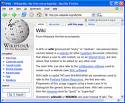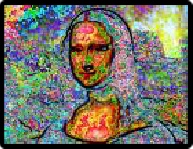
















NEXT
BACK
NEXT
BACK








Site Search


CURIOUS QUESTIONS
The scientific question addressed in this series of essays is an old one. It goes back to the original scientists, previously known as “natural philosophers”, or just as “lovers of wisdom”. Over 2500 years ago Greek thinkers asked themselves a few seemingly simple childish questions : “what is the world made of, and how does it work?” Since then, philosophers and scientists, theorists and empiricists have pursued the elusive answers to those simple queries. Yet they also thought long and hard about a more difficult question implicit in the basic quest : “why does it work the way it does?”
The Enformationism hypothesis is proposed as a possible scientific replacement for the fruitful, but aging, paradigm of Materialism. This new way of thinking about Reality suggests some counter-
1. What is the world made of?
Old – Solid Matter and zippy Energy; atoms & space.
New – Immaterial Information patterns and relationships, including wave/particles and Space/Time.
2. How does it work?
Old – By transformation of Energy into Matter, and vice-
New – By transformation of raw information/data/ideas into powerful Energy and malleable Matter and curving Space and cycling Time.
3. Why does it work like that?
Old – Science doesn’t answer “Why” questions.
New – Because the physical universe is essentially an idea in a metaphysical, universal Mind.
Like Einstein’s Theory of Relativity and the theory of Quantum Mechanics, Enformationism is a simple, but counter-


Some of us are generally familiar with the technical concept of Information Theory. But few of us, including the majority of scientists, have grasped the broad philosophical implications of the discovery that information is the substance of reality. In widely dispersed pockets, a few researchers are pursuing their individual interests in a field-
Most of those areas of study are still in the theoretical and hypothetical -


MYSTERY MATTER
Recent measurements reveal a universe consisting mostly of the unknown . . . . Of the other 96 percent . . . we know absolutely nothing.
—Lee Smolin
The Trouble With Physics
DISCLAIMER #1
The information presented in this thesis is only a preliminary and superficial treatise of a debatable topic that may never be satisfactorily resolved for everyone. It is intended only to offer for consideration a novel tool to break the either/or logjam of Idealism versus Realism, Spiritualism versus Materialism, with a both/and wedge.
Democritus :
Thales kept asking himself a primary question : “What is the world made of, and how does it work?” . . . Is there something permanent, an underlying identity, that persists through this constant change?
—-
The God Particle
WORLD STUFF
Perhaps there are not two radically different kinds of stuff, mind and matter, but just one great world-
—-